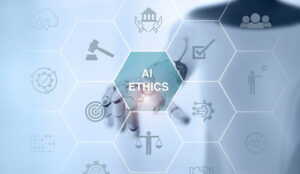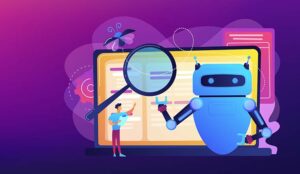Paul Segre of Genesys discusses the ethics of using Artificial Intelligence (AI) in the contact centre and the steps that his company are taking.
“Ethics is knowing the difference between what you have a right to do and what is right to do.”
Expressed with such clarity by former US Supreme Court Justice Potter Stewart, this statement is especially relevant today as we consider the power of AI and its potential impact on people’s lives.
Companies like Genesys understand this technology comes with tremendous responsibility as well as tremendous potential.
While the full capabilities of AI have not yet been realised, we need to proceed thoughtfully. Businesses are furiously conceiving ways this intelligent technology can be used to solve everyday challenges, make life simpler and create efficiencies in ways previously unimagined. Its potential seems without limits, which is why we must also consider its effects on society. As with so many other things in life, just because we can do something, doesn’t mean we should.
This leads us to why it’s important to acknowledge the significant role AI may soon play in consumers’ lives.
Companies are now using AI to process massive amounts of consumer data every day. This can include the type of data consumers expect organisations to have, such as names, addresses and preferred contact methods. And it also includes more intimate information like our location, behaviour patterns, voice characteristics, demographics, emotional state, family relationships, devices we use and much, much more.
This data is used to feed AI algorithms and is what enables businesses to deliver the most tailored and predictive customer service experiences today.
A Five-Point Guide to AI Ethics
It’s critically important that consumers are aware of and given a choice about the technology that impacts their privacy, safety and even equality. Organisations that develop AI solutions should steer an ethical path through what they create.
With this in mind, Genesys have formed a cross-functional AI Ethics Committee composed of representatives from its Executive, Product Management, Engineering, Human Resources, Communications, and Legal teams.
The goal is for Genesys to lead an industry conversation about how companies can and should use AI.
Below is the initial roll-out of the Genesys AI Ethics Guidelines, which will serve as the North Star for the company’s future AI development strategy.
The five elements of the guidelines are:
1. Transparency – Customers should be informed when they are conversing with an AI bot.
2. Fairness – Businesses should take steps to ensure their AI systems do not introduce bias against race, ethnicity, gender, nationality, sexual orientation, ability, etc.

Paul Segre
3. Accountability – Organisations are ultimately responsible for the AI systems they create and the systems created by their AI. (i.e., businesses are responsible even if their bots build something harmful).
4. Data Protection – AI must not be used to diminish the data rights or privacy of individuals or communities.
5. Social Benefit – Genesys is committed to social benefit through the thoughtful use of AI.
To learn more about AI ethics in customer service, check out Genesys’s resources and AI guidelines.
Author: Robyn Coppell
Published On: 23rd Nov 2018 - Last modified: 28th Nov 2018
Read more about - Guest Blogs, Genesys















